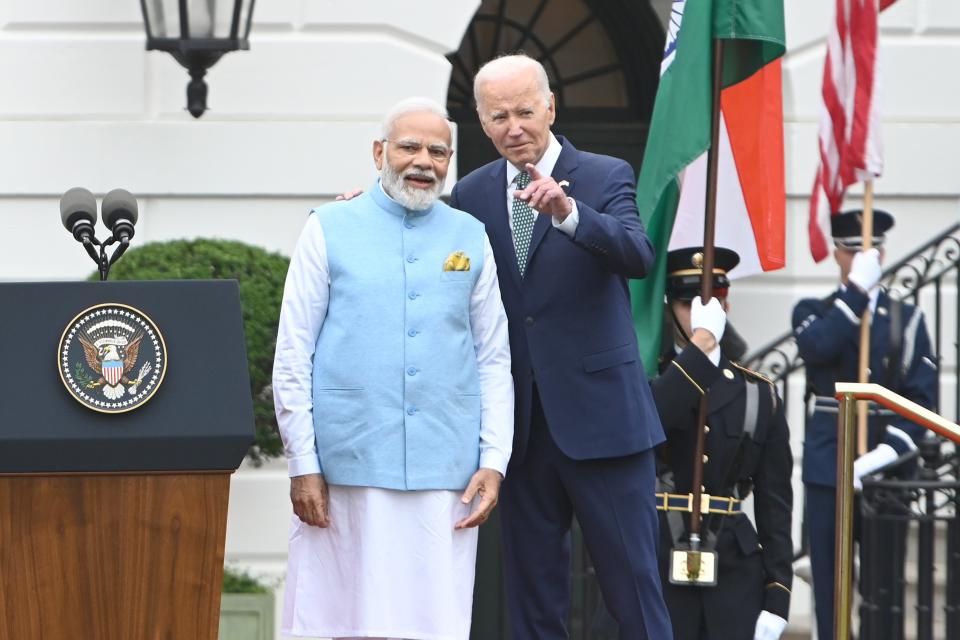Modi's election surprise raises questions about India for USA Inc

Narendra Modi's party won far fewer seats than expected in India's election.
Modi's weakened position may make it tougher for his government to push through reforms.
That could spook American firms that have warmed to the Prime Minister's pro-growth policies.
Narendra Modi claimed victory in India's general election despite his BJP party winning far fewer seats than expected, meaning it will now have to seek coalition partners to form a government.
The outcome sent Mumbai-listed stocks plummeting on Tuesday — and Modi's significantly weakened position could be a source of concern for American businesses, too.
Modi's decade as Prime Minister has often been controversial, with his vision of building a "divine India" fueling a rise in Hindu nationalism that's threatened to marginalize other religious groups.
But his pro-growth, pro-business policies have boosted growth and drawn in huge amounts of foreign investment — as well as winning the support of some of the loudest voices on Wall Street.
"Modi has done an unbelievable job in India," JPMorgan boss Jamie Dimon told the Economic Club of New York in April. "I know the liberal press here, they beat the hell out of him. He's taken 400 million people out of poverty."
Elon Musk has also posted on X about his desire to visit India and meet with Modi. The pair are expected to discuss Tesla's plan to build a multibillion-dollar new factory in the world's most-populated country.
Meanwhile, Apple CEO Cook said on a November earnings call that India is an "incredibly exciting market" and a "major focus of ours" given the explosive growth in potential customers as locals get richer. Modi has also met with Nvidia CEO Jensen Huang, Microsoft boss Satya Nadella, and Alphabet's Sundar Pichai in recent years.
Political stability
"I think most investors have read the tea leaves and have realized that some of the political stability and predictable policies that they expect, that they desire when it comes to making investment decisions, is likely to be available in India," Rajesh Kumar Singh, a trade official for India, told Business Insider in January at the World Economic Forum in Davos.
"I think the trick for India is going to be political stability, going forward for a period of time — because I think a lot of the economic fundamentals are there," Andy Baldwin, a partner at EY, said at the same conference.
But Modi's weakened position could erode that sense of stability and make it tougher for him to pass further pro-market reforms, analysts said on Tuesday.
China hedge
"The fear will be that if he has to rely on alliances with smaller parties, any market-friendly policies will be diluted," Russ Mould, investment director at AJ Bell, wrote in a research note.
"Some may now worry that India's lofty earnings rating leaves it exposed on the downside now that the political narrative may not be quite as clear cut as once thought," he added.
One appeal of India for the likes of Dimon, Musk, and Cook will likely have been Modi's firm grip on power, as USA Inc aims to hedge its bets on China given its strained relationship with the US and post-pandemic economic woes.
The surprise election result could undermine that confidence.
Read the original article on Business Insider

 Yahoo Autos
Yahoo Autos 